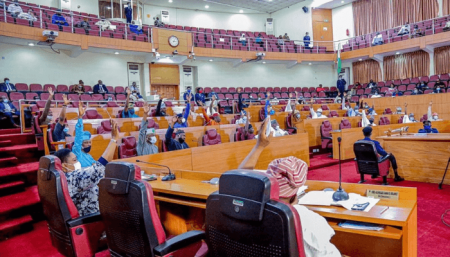The Dangote Petroleum Refinery’s ambitious plan to directly distribute petroleum products, including petrol and diesel, to marketers across Nigeria has sparked both excitement and apprehension. Hailed by some as a revolutionary move with the potential to reshape the nation’s energy landscape, the initiative aims to circumvent existing distribution inefficiencies and bring relief to consumers burdened by high fuel prices. By providing free logistics support to petrol station operators, manufacturers, and other large-scale users, the refinery aims to reduce the influence of intermediaries, promote competition, and ultimately lower the cost of petroleum products across the country. This direct distribution model has been lauded for its potential to curb inflation, create thousands of jobs, and ensure more equitable access to fuel, particularly in underserved rural areas.
Experts believe that Dangote’s strategy could significantly dismantle the long-standing dominance of middlemen in the oil and gas distribution chain. These intermediaries, including tanker drivers, have historically wielded considerable power, sometimes even holding the state hostage. This control has often translated into inflated fuel prices and inconsistent supply, particularly affecting those in remote regions. By eliminating these intermediaries, the refinery hopes to streamline the distribution process, reduce logistical costs, and pass on the savings to consumers. This move is expected to boost economic activity, stimulate job creation, and alleviate the burden of high fuel costs on ordinary Nigerians.
The refinery’s plan to deploy 4,000 new CNG-powered tankers further underscores its commitment to both economic and environmental sustainability. This initiative not only addresses the country’s distribution challenges but also reduces the reliance on traditional, more polluting fuel sources for transportation. The introduction of CNG-powered tankers aligns with global efforts to reduce carbon emissions and promote cleaner energy alternatives. This forward-thinking approach demonstrates the refinery’s commitment to a sustainable future for Nigeria’s energy sector.
However, the initiative has also met with resistance, particularly from existing players in the fuel distribution network. The Petroleum Products Retail Outlet Owners Association of Nigeria (PETROAN) expressed concerns about potential job losses for tanker drivers and the possibility of filling station closures. Their apprehension stems from the fear that a direct distribution model could render their current operations redundant. While acknowledging these concerns, proponents of the plan argue that the long-term benefits of increased efficiency, lower prices, and job creation outweigh the potential short-term disruptions.
Responding to these concerns, energy experts argue that the focus should be on addressing the systemic inefficiencies that have plagued the sector for decades. They point to logistical and regulatory failings that have hampered fuel distribution and created an environment ripe for exploitation by intermediaries. Dangote’s intervention, they maintain, is a necessary step to break the cycle of inefficiency and ensure that Nigerians finally benefit from domestic refining. By absorbing the costs of transportation, storage, and bridging, the refinery is effectively assuming responsibilities that should have been streamlined long ago.
Furthermore, the refinery’s reliance on road transport is seen as a strategic move to bypass existing infrastructural and bureaucratic bottlenecks. While acknowledging the limitations of road transport, experts argue that it offers a more immediate and practical solution in the face of persistent challenges in pipeline infrastructure and regulatory hurdles. This approach allows the refinery to quickly reach markets across the country and ensure a more consistent and equitable fuel supply. In the long run, the increased efficiency and competition fostered by this initiative are expected to drive down prices and benefit consumers nationwide. Ultimately, the success of this ambitious plan will be judged by its impact on fuel prices and its ability to deliver on its promise of a more efficient and equitable energy landscape for Nigeria.














